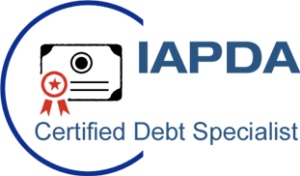
We all want to save money, but what if there’s none to save?
All of us want to save some money. Whether it’s for a specific purchase, pay off debts, or simply to plan a bright future. Everyone has goals to reach; traveling, buying a beautiful home or car are common ones. Saving for these goals can seem impossible when you’re living on a low income.
According to Forbes, 78% of Americans are living paycheck to paycheck. When you are earning this low, you simply don’t have the funds to allocate to saving once the bills are paid. Rather saving some money can be the last priority on your list.
So, how do people making an average or below average income actually save money? Or how can you reach your desired financial goals on a low income?
When it comes to money, it’s significant to not only think about the current situation but also the future. Even if you’re making a minimum wage, a little saving can still be possible. Here’s how:
1. You Need to Handle High-Interest Debt First
The first step in saving some money will be handling your debts first. Specifically, you should manage those personal loans and credit cards which yield the highest interest rates. The reason is that they force you to pay high fees and interest charges, making it harder to free up money in your budget. While paying off debts, an attainable yet challenging plan is needed. You can start by prioritizing your debts with high interest first and then other ones.
After that, as you go forward; avoid gathering up any more high-interest debts (credit cards, payday loans, etc.).
2. You should cut down your biggest expenses to save money
It can be very challenging to save money while earning a low income. Sometimes it feels impossible to cut down and save even a dollar or two every month.
Apart from the typical money-saving ideas, such as cooking meals at home and calling off your cable bill, what else you can do? Instead of cutting your small expenses like this, you can focus on the larger ones. This can make more of an important impact.
For example, housing costs are the biggest expenses for some people. If you’re renting your house, consider economizing to a smaller home or living with roomies.
If you own your home, taking a look at refinancing your mortgage to a lower rate could be helpful. For additional income, you could rent out a room, or parking spot in some cities.
Note: Be sure to understand the term of refinancing though. Sometimes the refinancing also extends the loan term.
3. Always Take Advantage of Free Money
Whenever you can take advantage of free money, take it. You may qualify for the earned income tax credit (EITC) for a family with low income. The EITC can be a huge refund on your taxes and also help you keep more of your earnings. The savings can reach as high as a few thousand dollars.
You can also look into a 401K at your workplace and see if the company matches up to a certain level of your contribution. If it’s possible then take advantage of it and start your savings as soon as possible. The company’s match is basically a free money source that will further help you save towards retirement.
4. Keeping Your Budget Lean will Help
In order to save more, you have to take control of how much spending you have. You can choose the essentials on your list and then keep the rest of your budget as lean as possible. You just have to limit your wishes that are like a sacrifice but it’s not something impossible.
Simply learn to live with moderation. For example; cut back on your dining out, movies or excessive shopping. You can still enjoy these things one in a month but not multiple times a week.
5. You can Start a Side Hustle
If you are unable to do any of the above-mentioned tricks, it’s alright. Consider expanding your income by starting a side job to earn extra money. Apart from your full-time job, you can start doing a job on the side to create another income stream.
Think about what you are good at, what kind of skills can earn you some money, or which of your favorite enjoyable thing can be turned into a side job.
Note: Common side hustles are data entry, graphic design, and freelancing writing.
Conclusion:
The good news is, you’re not alone. With 78% of the country living paycheck to paycheck, it’s difficult for most people to balance paying debt with saving money. At CFF, we talk to many people who are making a below average income and are simply unable to get ahead.
If part of your struggle is unsecured debt such as credit cards, medical bills, payday loans, etc., consider a debt relief program to eliminate your debt. This can be a great way to start a savings plan. Once your debt is cleared, saving becomes significantly easier.
Of course, this is only the case if you don’t start spending on those credit cards again 🙂
Your partner in debt relief,
Consumer First Financial





